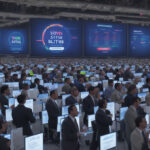The Role of Science and Technology in International Security and Disarmament
The United Nations Office for Disarmament Affairs (UNODA) highlights the crucial role of science and technology in shaping international security and disarmament efforts. Recognizing the accelerating pace of technological advancements and their potential military applications, the UN has been actively monitoring and addressing these developments since the late 1980s.
Origins of the Issue on the UN Agenda
The topic was first introduced to the United Nations General Assembly’s First Committee in 1988, largely due to efforts led by India. Delegates expressed concern about increasing investments in new weapon systems and emerging technologies such as nuclear miniaturization, advanced computing, fuel and laser technologies—all of which were transforming the security environment and introducing uncertainties and challenges to global stability.
On 7 December 1988, the General Assembly adopted its first resolution on the matter (Resolution 43/77 A) with significant support—129 votes in favor, seven against, and 14 abstentions. This resolution tasked the UN Secretary-General with tracking scientific and technological advancements with potential military uses and assessing their impact on international security.
Comprehensive Study and Expert Engagement
To fulfill this mandate, the UN convened consultations in 1989 that identified key technological domains for study, including nuclear, space, materials, information, and biotechnology. In addition, experts from various fields were invited to submit papers evaluating these technologies’ military implications.
Furthering the discourse, the UN organized a high-level conference entitled “New trends in science and technology: implications for international peace and security” in Sendai, Japan, in April 1990. This gathering brought together scientists, strategic analysts, disarmament experts, politicians, and diplomats from over 20 countries to discuss emerging issues and review expert assessments.
Following this extensive review, the Secretary-General submitted a detailed report to the General Assembly in October 1990 (Document A/45/568). The Assembly acknowledged the report through Resolution 45/60 and affirmed the importance of positioning the international community to better understand and respond to technological changes—a role where the United Nations could provide crucial support.
Ongoing Monitoring and Reporting
Since then, the issue of science and technology in the context of international security and disarmament has remained a staple on the agenda of the First Committee. The General Assembly resumed active resolutions on this topic in 2017 with Resolution 72/28, requesting the Secretary-General provide updated reports on current scientific and technological developments and their security implications annually.
These reports have tracked rapid advancements such as artificial intelligence in military applications, armed uncrewed systems, cyber and information and communications technology (ICT) security, missile technologies, and outer space developments. The continuous assessments support the international community’s efforts to understand risks and opportunities presented by new technologies, inform policy-making, and guide disarmament and arms control measures.
Supporting International Security and Disarmament Efforts
The UNODA provides resources and maintains databases dedicated to disarmament treaties, conventional arms control, and emerging technological challenges. It also fosters international cooperation, education, and dialogue through various forums and platforms. The Office coordinates global efforts to ensure that technological progress contributes to enhancing peace and security rather than exacerbating conflict or insecurity.
Conclusion
Science and technology remain at the forefront of international security concerns. Through sustained monitoring, expert engagement, and international cooperation led by the United Nations, the international community seeks to ensure that technological advancements promote disarmament and peaceful security arrangements worldwide.
For ongoing updates, official reports, and further resources on this important issue, visit the United Nations Office for Disarmament Affairs website.










